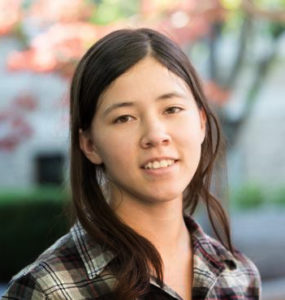 E-mail: jsaeli@nd.edu
E-mail: jsaeli@nd.edu
Language: Russian
Location of Study: Bishkek, Kyrgyzstan
Program of Study: Arizona State University’s Critical Languages Institute Summer 2018 Third-Year Russian program in Bishkek
Sponsors: The Center for the Study of Languages and Cultures and The Melikian Center
Blog URL: http://sites.nd.edu/sla2018/author/jsaeli/
A brief personal bio:
My name is Jessie Saeli and I am a rising junior double-majoring in Philosophy and Russian. I was born in temperate California but raised in sweltering Louisiana. Last summer, I participated in the Mother Russia Calling program and traveled abroad for the first time, to Moscow and St. Petersburg. Now, I am excited to travel to yet another country: Kyrgyzstan! Part of my philosophical interests include surveying the different answers that different cultures give to the big philosophical questions, so I am very excited to be studying Russian language and Kyrgyz culture in an immersive program abroad.
Why this summer language abroad opportunity is important to me:
First and foremost, I am a philosopher, and that means that I pursue Truth. My interests in Russian intersect my interests in philosophy because I believe that examining the cultures and philosophies of different nations provides a more comprehensive picture of the complete Truth. Russian specifically appeals to me because of its unique history between the Western and Eastern civilizations. Experiencing Russian and Kyrgyz culture will help me to understand the Eastern view of the world and fluency in the language will allow me to conduct future research into the Russian psyche by reading Russian manuscripts and interviewing Russian-speaking natives. After graduation, I plan to explore new ways of synthesizing Western and Eastern philosophy while at graduate school. Finally, I plan to use my Philosophy PhD to become a professor of philosophy and then promote scholarship in vastly underappreciated Eastern and Russian philosophy. When I first learned of this amazing immersive program in Kyrgyzstan, I was initially discouraged by the high cost of attending the program. However, the SLA grant has made it possible for me to attend this program, which will enrich my undergraduate studies in both Russian and philosophy.
What I hope to achieve as a result of this summer study abroad experience:
Language proficiency is the main focus of my study abroad experience. Mastery of the Russian language─both speaking and reading/writing─will further my Russian studies by allowing me to read Russian resources and view Russian media in the original. In my undergraduate career, these skills will help me continue my studies of Russian language and culture. In the future, these skills will allow me to study, and perhaps even translate, the not-yet-translated writings of Russian philosophers such as Skovoroda, Solovyov, Florensky, and Solzhenitsyn, as well as contemporary Russian works pertinent to the current political climate. This opportunity in Kyrgyzstan will allow me to live in a little-known Central Asian country with a culture fundamentally different from American or even Russian culture. Learning more about different cultures ties to my philosophical studies because I believe that considering multiple perspectives brings one closer to Truth. Russian philosophy, and Eastern philosophy in general, is radically different from the Western philosophy that I will be studying during my undergraduate career at Notre Dame. This program will provide me with a first-hand, immersive experience in a radically different culture.
My specific learning goals for language and intercultural learning this summer:
1. At the end of the summer, I will be able to hold confident, intelligent conversations with non-English speaking Russian and Kyrgyz people on a wide range of topics, especially casual conversation topics.
2. At the end of the summer, I will be able to describe Kyrgyz culture and history and articulate the differences between Kyrgyz, Russian, and American cultures.
3. At the end of the summer, I will be able to speak Russian fluidly and improve my pronunciation (and describe the differences between a native Russian accent and a Kyrgyz accent).